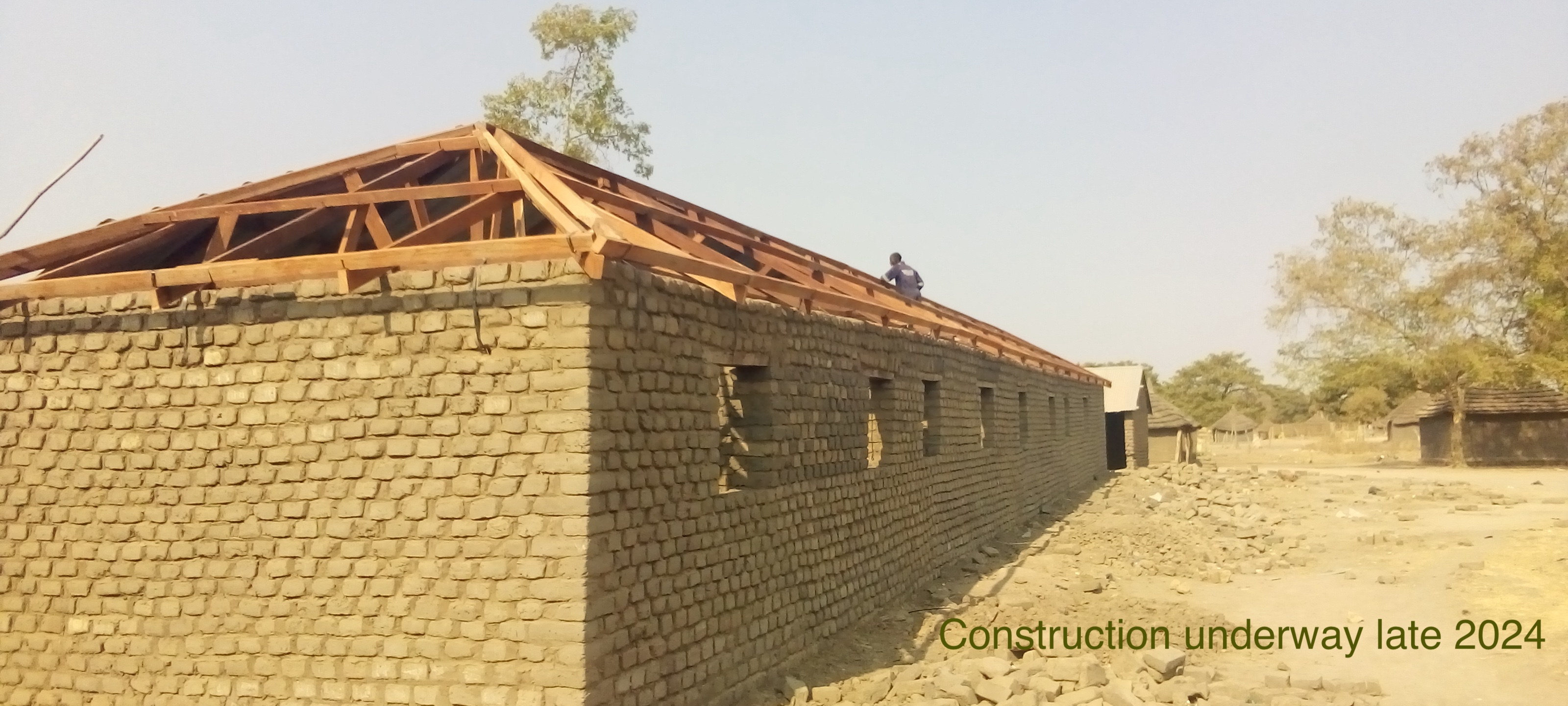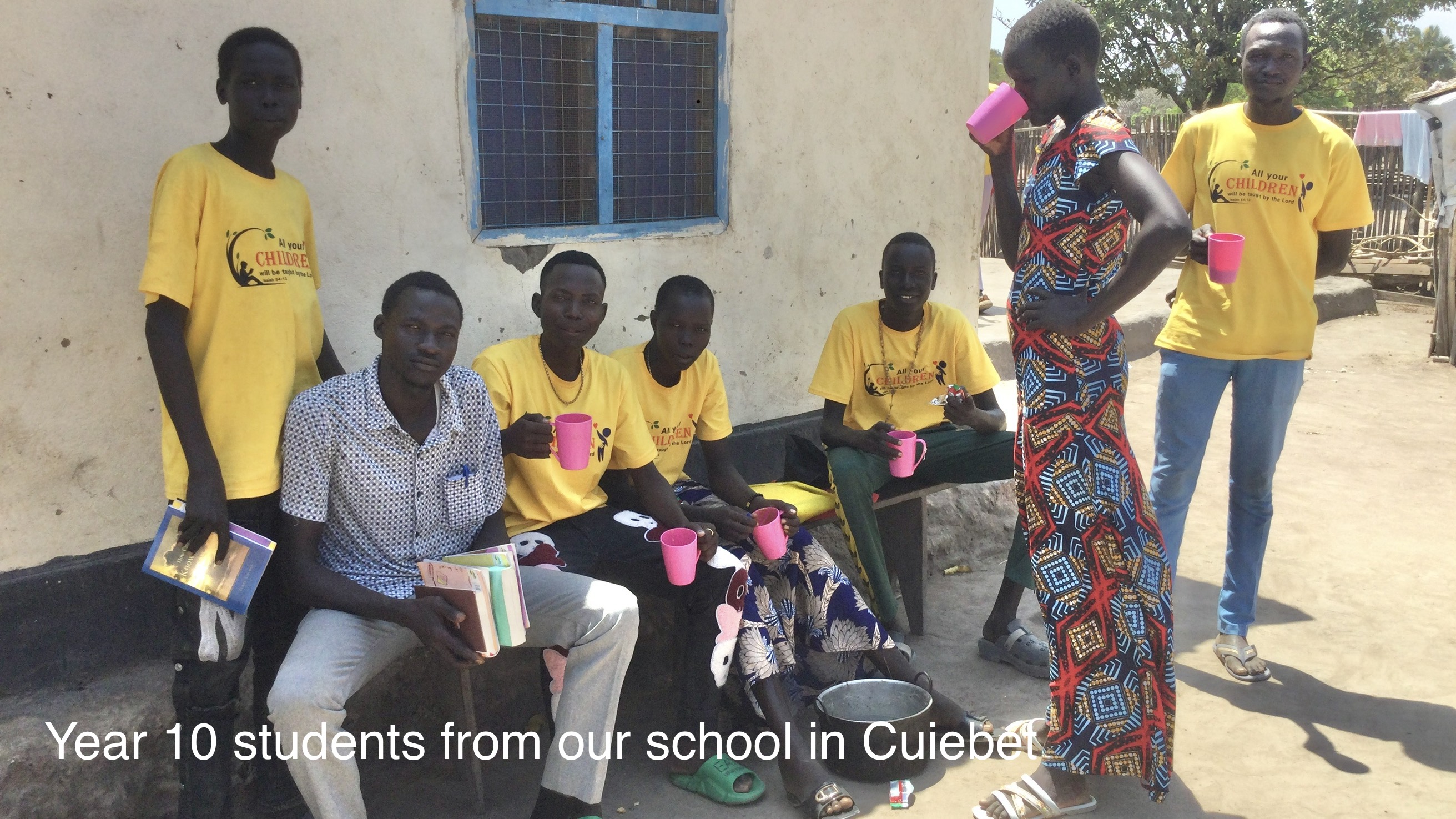 In early February, I visited Cueibet in South Sudan as a representative of the Chalke-Cueibet Partnership (CCP), Chalke Deanery’s charity for the link which was formed with the Diocese of Cueibet in 2013. It is part of a long-standing association between the Diocese of Salisbury and the Episcopal Church of South Sudan.
In early February, I visited Cueibet in South Sudan as a representative of the Chalke-Cueibet Partnership (CCP), Chalke Deanery’s charity for the link which was formed with the Diocese of Cueibet in 2013. It is part of a long-standing association between the Diocese of Salisbury and the Episcopal Church of South Sudan.
South Sudan is one of the poorest countries in the world, and Cueibet is one of its poorest areas. It lies about 230 miles NW of the capital, Juba, in a semi-arid region with poor soil. There are no roads to many of the outlying communities. The road from Juba is unsurfaced and often impassable; there is no running water and no mains electricity, although the mobile coverage is better than in some parts of the Chalke Valley!
Since the partnership was formed, the CCP has successfully raised funds to support a number of projects. Money was raised for the first school, we provided sewing machines to enable the women to make money in the market, we supplied bicycles for the Bishop’s pastors and perhaps most importantly, financed further education to selected individuals to enable them to better serve their community.
Following unusually heavy rain a couple of years ago, parts of the original school, which had been built to local standards, began to collapse. Sadly, mud brick + rain = mud! We have recently raised a significant sum of money to start the work of rebuilding the school to a much higher standard. The primary purpose of my visit was to review progress on the first phase of the rebuilding.
The rebuilding of the school is progressing well: all the work is done manually, no power tools or cement mixers. The building looks strongly built and should be rainproof. (Following my visit, photos were sent of the new building. The exterior is complete, and they are now finishing off the interior.)
The local community, teachers and pupils are very proud of their new school building and are looking forward to its opening. We now need to raise further funds to proceed with Phase 2 and replace the second smaller building. (After a successful fundraising appeal during Lent, they have now started
work on Phase 2.) The head teacher, Moses Mayan, is overseeing the project.
There are currently 400 children in 9 classes (grades 1-9 approx age 5 to 14) and 16 teachers, 10 of whom are volunteers. However, I was told that no teachers have had paid for 13 months. The headteacher is more relaxed about this, explaining that it is normal practice for teachers to be paid in arrears. He also believes that with the new building, retention of teachers should not be too much of an issue and that the number of children will increase as parents are attracted by the new facilities.
Since the partnership was established, Bishop Elijah Matueny has been our primary point of contact in Cueibe,t and his wisdom and influence has been critical to the success of the work of the CCP. Sadly, he has now reached retirement age. A secondary task of my visit was to establish new relationships with community and church leaders and, in this way, to maintain confidence that the projects we support are important to the community and that the money we spend - your money, if you are one of our donors - is well spent!
I was fortunate to be able to have a meeting with Archbishop Alapayo Kuctiel of the Internal Province of Eastern Bahr El Ghazal, which includes Cueibet Diocese. We have known him since 2015, and his message was
“A partnership like Chalke-Cueibet is a precious thing. It can take years to build but is easily broken. We must not let that happen”
The identity of Bishop Elijah’s successor is not yet known, but Archbishop Alapayo explained that plans were in place to look after the Diocese until the next bishop was appointed. I am confident that, in the meantime, the CCP will be in a position to continue its programme of support to the Cueibet community.
I spent a week in Cueibet, staying in one of their basic buildings and eating local food cooked over an open fire. As the day time temperature touched 40°c, meetings were usually conducted under the shade of a mango tree, and we ate after dark when it was cooler. Fortunately, there were no mosquitoes!
Life is not easy in Cueibet; they lack so much that we take for granted. The local community is, however, optimistic, generous and resourceful, and life here has improved significantly since my first visit 10 years ago. I have seen at first hand the results of the projects that we have been able to support and feel privileged to have been able to represent Chalke Deanery in Cueibet.
I am glad to say that I did not feel unsafe or in any way threatened during my time in Cueibet, although transit through the capital Juba was a little intimidating.
I look forward to visiting my friends in South Sudan again to see the outcome of this current project.
- Sherwood Elcock A Trustee of the Chalke-Cueibet Partnership
